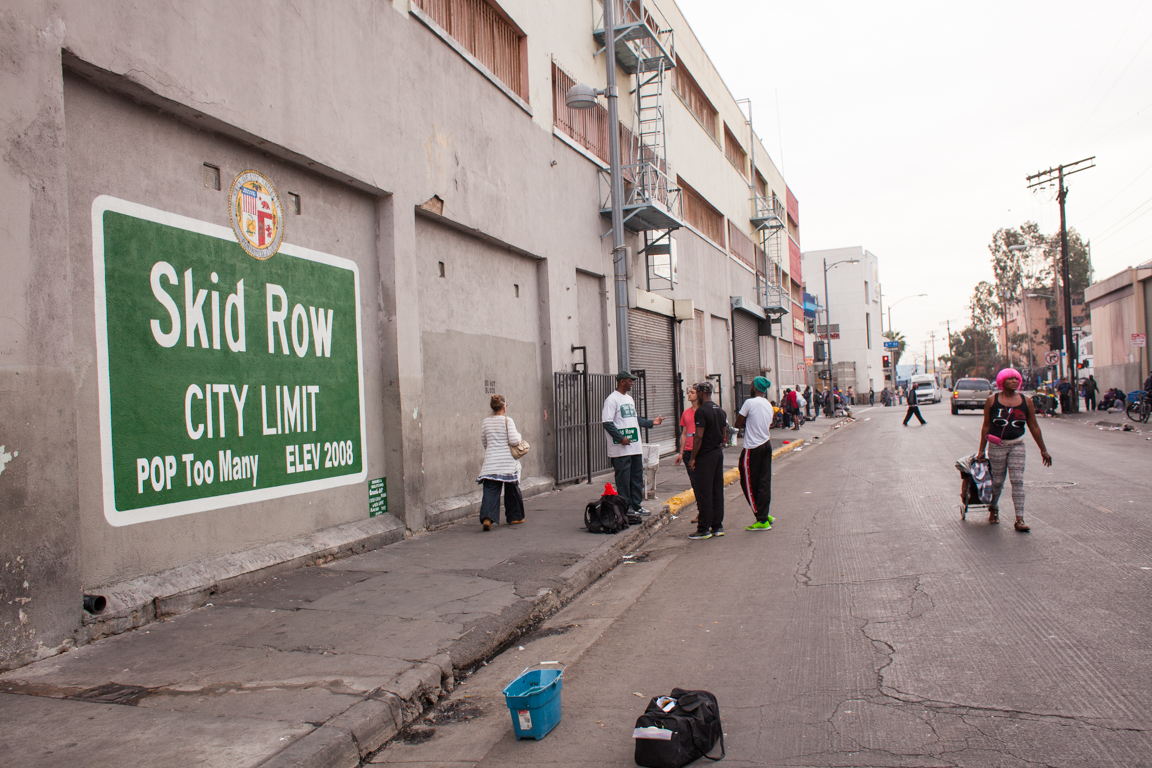By Les Greenberg
Mr. Martin R. Cole
City Clerk
9770 Culver Boulevard
P.O. Box 507
Culver City, CA 90232-0507
Re: Nov. 10, 2014, City Council Meeting
Agenda Item No. CS-8
Dear Mr. Cole:
On behalf of certain residents of the 10700 block of Farragut Drive, I recently filed a Brown Act cease-and-desist letter with Culver City. In substance, the allegations deal with Councilperson Andrew Weissman causing the City Council to discuss and act upon a matter which did not appear on the Aug. 11, 2014, City Council meeting Agenda.
A review of Mr. Weissman’s recent email communications with city staff demonstrates the bullying tactics he employs when advocating on behalf of the Grace Evangelical Lutheran Church .
Prior communications have detailed Mr. Weissman’s undisclosed political and business relationships with a senior Church member.
Hopefully, Mr. Weissman will not be able to manipulate this Council into prolonged litigation and personal exposure.
As an alternative, Culver City can enter into a consent decree whereby, in effect, it denies violating the Brown Act, but promises not to do it again.
Emails Resulting from Public Records Act Request
Pursuant to a California Public Records Act request, I recently received from the Culver City City Clerk a copy of numerous email communications between Mr. Weissman and members of the Culver City staff, e.g. John Nachbar, Chief Administrative Officer, Charles Herbertson, City Engineer, Gabe Garcia, Traffic Engineer, Sol Blumenfeld, Director Community Development. On Sept. 8, 2014, alone, beginning at 2:54 a.m., there were 25 email communications.
Those communications indicate Mr. Weissman’s obsession with arbitrarily removing the long-standing, permit-only-parking restrictions on Farragut. Further, they reveal that Mr. Weissman knows that his positions are without merit. Also, they evidence that Mr. Weissman approaches this matter more as a representative of the Church than a Councilperson seeking truth and justice.
Weissman Acknowledges Council’s Lack of Jurisdiction
Mr. Weissman admits that the Procedures and Regulations for Preferential Parking Districts (Procedures), adopted by this Council in November 2013, leave the City Council without appellate authority to review the traffic engineer’s decisions concerning the Farragut Parking Restrictions. Further, Mr. Weissman recognized that the Church, a non-resident of Farragut, has no right to appeal to the City Council.
On Sept. 7, 2014, at 9:58 a.m., Mr. Weissman wrote:
“Thanks but I guess this is where I blew it when we were talking about consolidating districts and trying to make restrictions uniform. I wanted us to actually look at reviewing the ones that weren’t but obviously was close to being clear. I also failed to understand that only residents would have the right to challenge an action or inaction on the part of the City Engineer because Farragut and the Church is specifically what I had in mind when I brought it up. … In the case of Farragut, they have maintained their restrictions for 32 years. What analysis have we ever done to confirm if the restrictions are necessary and justified? I guess that is what would take place if I can persuade two of my colleagues tomorrow.
On Aug. 11, 2014, as a result of his purported failure to understand the Procedures, Mr. Weissman manipulated this Council to grant the Church a right of appeal to the Council where none is permitted.
Staff Declines to Exercise Its Discretion Re: Farragut
The traffic engineer and city engineer had and have no intent to exercise their discretion to review the Farragut Parking Restrictions. Under the Procedures, the City Council has no authority to force staff to conduct a review of the Farragut Parking Restrictions.
Mr. Weissman disregards staff’s public commitment not to review the Farragut Parking Restrictions. The staff, exercising its discretion, decided that the Farragut Parking Restrictions would not be “part of the standardization process.”
On Aug. 28, 2014, at 12:02 p.m., Mr. Herbertson wrote:
“Farragut was ‘grandfathered in’ when the new preferential parking guidelines were adopted about 1 year ago. That is not the only district that differs from the new standard restrictions. … [B]ecause of the sensitivity of that district and I think a few others, we stated publically at the City Council meeting that the Farragut district (and perhaps a few others) would not be proposed to be changed as part of this standardization process. … It just means that staff indicated that we were not going to pursue those as part of the standardization process.”
At the Sept. 23, 2013, City Council meeting, Mr. Garcia stated:
“Those streets that currently have parking restrictions would be adopted into the district with their current parking restrictions. … We propose that Council give authority to staff to administratively reach out to the community, propose a change, with written notice of 30 days, and then effect the change. … There are specific areas of lack of uniformity. … [L]ook to the west … Farragut, west of Overland. We would not propose to change that. These are all locations that have very specific impacts, that have been quantified in the past, and we would not seek uniformity in these locations.”
(Meeting video transcript at 53:10 – 55:20; emphasis added.)
Mr. Weissman refuses to defer to the staff’s expertise, and he disavows their public commitments.
Mr Weissman Wants to Arbitrarily Pull Off All Restrictions
Mr. Weissman wants the Council to arbitrarily remove the Farragut Parking Restrictions.
On Sunday, Sept. 7, 2014, at 10:07 a.m., Mr. Weissman offered his grand compromise:
“Pull off all restrictions on Farragut and conduct a brand new study to determine if 14-hour restrictions are necessary and appropriate. A fresh look at the whole area. The church spans from Franklin to Farragut. Why does the Church affect Farragut but not Franklin? Why does Farragut need this kind of restriction, but Franklin one block north of Farragut has zero restrictions?”
Further, Mr. Weissman does not comprehend that Franklin has no parking restriction as the Franklin residents have not requested any. But he assumes, without any factual support, that Franklin is not impacted. However, Ms. Kathleen Bunker, a Franklin resident, recently wrote:
“Our block of 10700 Franklin, which has no parking restrictions, has become the parking lot for the Grace Lutheran Church, the schools and the neighborhood… [We have] bumper to bumper parking on our block.”
(Oct. 30, 2014, Culver City News, Letters to the Editor, p. 4.)
Mr. Herbertson recognized the Catch-22 of Mr. Weissman’s desire to “pull off the restrictions.” The Catch-22 is that Culver City must first arbitrarily remove the Farragut Parking Restrictions to determine it is proper to remove them.
On Sept. 7, 2014, at 9:39 a.m., Mr. Herbertson informed Mr. Weissman:
“We haven’t actually disbanded any district blocks yet although there are several that have fallen below the threshold %. We are giving them time to purchase more permits. However, if a pattern of low participation continues, we would consider recommending to the City Council, following appropriate notification and review of the situation, to disband the district. We may be doing this in the future if the circumstances seem to suggest that a district is no longer needed. Of course that can be hard to demonstrate when the restrictions are still in place.”
Weissman Confuses Requirements Applicable to Establishing District from Those Related to Existing Districts
The Rules and Procedures for Preferential Parking Districts (October, 1990) do not deal with enhancing parking restrictions in an existing district, e.g. Farragut. However, Mr. Weissman condemns the prior Council for not doing what it was not required to do.
Mr. Weissman is extremely concerned that in 2004 the City Council extended the Farragut Parking Restrictions to 10 p.m., alleging that that Council did not conduct an analysis. However, no rule required an analysis to enhance existing parking restrictions. Mr. Herbertson reminded him.
On Sept. 8, 2014, at 12:03 p.m., Mr. Herbertson advised Mr. Weissman:
“I’m still looking for a copy of the Preferential Parking Permit regulations as they existed in September 2004. However, it probably doesn’t matter what they say or require.”
On Septe. 8, 2014, at 1:02 p.m., Mr. Herbertson further elaborated:
“Since these 1990 regulations were in place and still relevant in September 2004, they normally would have been used at that time to establish a preferential parking district. However, in 2004 the Farragut district already existed and the request was to extend the hours of an existing district, not to establish a new one. In addition, it seems clear from the Chronology in the file that as part of the City Council's approval of a lease for the Adult School, the City Council directed the extension of the existing parking restrictions from 6 p.m. to 10 p.m.”
Weissman Wants Two Councilpersons to Join Him Out on a Limb
Even though Mr. Herbertson informed Mr. Weissman that there is no record of whether the 1982 parking restrictions were based on an analysis, Mr. Weissman is “willing to go out on a limb” to say no analysis was conducted, and he pushed staff to agree. Staff pushed back.
On Sept.8, 2014, at 12:10 p.m., Mr. Weissman wrote:
“So it is accurate to say that no traffic impact study has EVER been done in connection with parking restrictions on Farragut? Yes (sic).”
On Sept. 8, 2014, at 12:22 p.m., Mr. Herbertson pushed back:
“I’m not comfortable saying that as it is possible that a parking impact analysis of some sort was conducted when the original restrictions were put in place. Unfortunately, unless we find more information, it is really hard to say for sure one way or the other. I think we can safely say, however, that when the restrictions were extended in 2004 from Permit Only Parking 8 a.m. to 6 p.m. to Permit Parking Only 8 a.m. to 10 p.m., that there was no parking analysis to go along with that. The only analysis? conducted appears to be polling the residents to see if they supported the idea.”
On Sept. 8, 2014, at 12:27 p.m., Mr. Weissman responded:
“Ok. I'll gladly go out on a limb and say it. I think it is safe to say, based on the minutes of the Council meeting of January 25, 1982 that the restrictions were approved without benefit of any traffic study.”
On Sept. 8, 2014, at 1:06 p.m., Mr. Weissman further responded:
[I]t seems [] clear that a parking impact analysis wasn’t done in 1982…. At least, that’s my story and I’m sticking to it (sic)
Weissman Withheld Material Information From the Council and the Public Concerning the Church’s Parking Obligations
Mr. Weissman has a propensity not to reveal information that would negatively impact the Church position. The following is another example. It concerns what Culver City has “done with other churches with similar parking issues.”
On Sept. 8, 2014, at 6:19 p.m., Mr. Weissman stated:
“I expect a question to come up regarding the church's intensification of use of its facilities and the implications with respect to parking.”
On Sept.8, 2014, at 6:54 p.m., Mr. Blumenfeld responded by stating:
“The short answer is the Church may operate as an assembly use with legal nonconforming parking. They may not intensify the use (add other uses that contribute to increased parking demand) without supplying additional parking to meet that demand, on-site or at an approved offsite location with a long-term parking lease approved by City Council.
“As we have done with other churches with similar parking issues, Grace Lutheran would need to identify all of their services and activities We would then help them quantify their related parking requirement and then work with them to determine how best to supply it.
(Emphasis added.) Culver City’s standard solution would be to require the Church to supply on-site parking or “an approved offsite location with a long-term parking lease approved by the City Council.”
But, in seeking special treatment for the Church, Mr. Weissman did not reveal this and other material information at the Sept.8, 2014, City Council meeting. Rather, than “work with [the Church] how best to supply [parking],” Mr. Weissman’s solution is to “pull off all restrictions on Farragut.”
Councilpersons would be remiss in their obligations to the city and to themselves to follow Mr. Weissman “out on a limb.” In my opinion, Mr. Weissman is an advocate on behalf of the Church. Even though he is licensed to practice law, he admits that he lacks understanding of the Procedures. He is a bully. He fails to reveal material facts to the Council and to the public.
“Weissman will do whatever it takes “if [he] can persuade two of [his] colleagues” to go along. He did that at the Aug. 11, 2014 Council meeting by manipulating the Council to discuss and to act upon the Church’s letter—a non-agenda item—in violation of the Brown Act.
Thus, I urge the City Council to disregard any advice offered by Mr. Weissman on Brown Act issues and sign the Brown Act consent decree.
Mr. Greenberg may be contacted at plgreen@att.net







